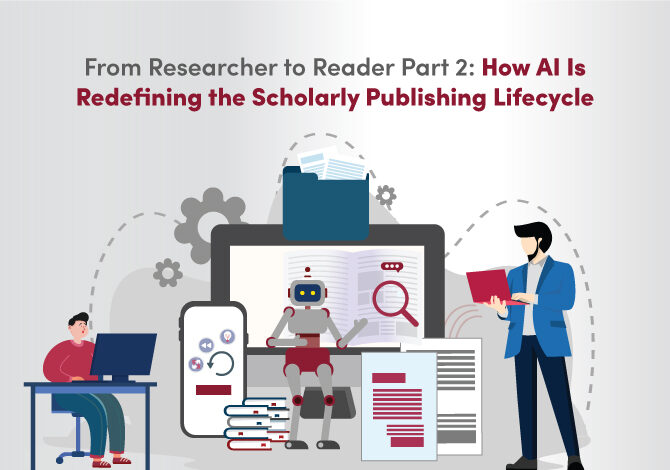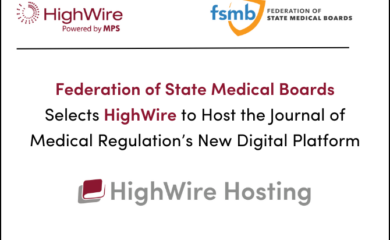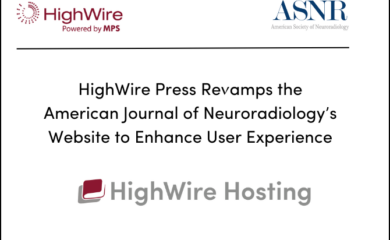As the global research ecosystem evolves, one truth has become clear: the next leap in scholarly publishing will be driven not by automation alone, but by intelligent integration. Across MPS and its SaaS division, HighWire, artificial intelligence is being woven into every stage of the research-to-reader journey, not as a replacement for people, but as an ally that improves efficiency, accelerates publication, safeguards integrity, and strengthens human expertise.
At the center of this transformation is MPS Labs, our AI/ML and NLP research center. Its mission is practical innovation, developing intelligent microservices that our staff use every day and that integrate seamlessly into MPS platforms such as DigiCorePro and HighWire Hosting. Many of these tools are already live across MPS workflows; others are in beta or proof-of-concept, moving rapidly toward release. Together, they are building the foundation for a new era of connected, data-driven publishing.
In this second installment we discuss how AI is helping to ensure trust and accessibility, and how the human is still has an essential role in the publishing process. Check out the first part of this two-part series where we address how AI is increasing efficiency and speeding up publishing workflows at MPS.
Research Integrity: Safeguarding Trust
Efficiency and speed mean little without integrity. As AI becomes ubiquitous in research and publishing, MPS has made research integrity a cornerstone of its innovation strategy.
Image Forensics (Beta)
Using advanced computer-vision algorithms, this tool detects manipulations such as splicing, cloning, and retouching across thousands of submitted figures. Phase-2 beta testing shows 40% reductions in manual screening time and significant decreases in false positives. The tool is being integrated into our Research Integrity Compass (RIC) module; a dashboard being integrated into DigiCorePro.
AI Content Detector (Proof of Concept)
This ensemble model, combining GPT-J, SBERT, BERT, RoBERTa, and XGBoost classifiers, distinguishes between human- and AI-generated text based on perplexity and stylistic patterns. It is being refined for use in manuscript triage and ethics screening, helping editors spot fabricated or AI-augmented submissions early in the workflow.
DEI Check & Correct (Live)
This tool leverages both LLMs and computer vision to identify and flag bias or representation issues in text and imagery. It provides suggested corrections aligned with established DEI standards and editorial guidelines. A two-phase human review process, subject-matter expert validation followed by internal QA, ensures that changes are contextually and ethically sound.
Image DEI and Risk Profiling (Design Stage)
Building on the same foundation, this upcoming service will analyze imagery for potential ethical or cultural risks (e.g., stereotyping, lack of consent, or dignity violations). Human reviewers will remain central to final decisions, ensuring sensitivity and accountability.
Together, these systems form a multi-layered integrity shield; a combination of AI vigilance and human editorial wisdom.
Accessibility and Enrichment: Opening Knowledge
Accessibility is integral to inclusivity, and AI is helping MPS deliver richer, more equitable reading experiences.
Alt-Text Generation (Live)
This multimodal AI service combines convolutional neural networks (BLIP, ResNet-50) and transformer-based language models (Llama-2) to automatically generate image descriptions. The system pulls context from figure captions and surrounding text to produce scientifically accurate alt-text, which is then reviewed and refined by editors following WCAG and subject-specific guidelines. The result: faster, scalable accessibility compliance without compromising accuracy.
Content Generation for Learning and Summaries (Live)
Using LLM-based models, MPS can generate abstracts, plain-language summaries, PowerPoint decks, and learning assessments from complex scientific material. Assessments are aligned with Bloom’s taxonomy and validated by subject experts to ensure fairness and relevance. These tools are now in use across MPS’s education and corporate publishing services, helping turn complex research into accessible knowledge products. This can also be integrated into HighWire Hosting to create on-the-fly or curated quizzes for students or continuing education assessment.
Tagging of Media and Images for Discovery (In Design)
A forthcoming tool integrates YOLO, OpenCV, and Tesseract OCR to create searchable metadata for visual content, enhancing reuse and discoverability across archives. Once deployed, it will feed directly into HighWire Hosting’s semantic search and discovery modules.
Keeping the Human in the Loop
What truly distinguishes MPS’s approach to AI is its deliberate design for human-in-the-loop validation. Most AI models, whether for language editing, translation, image analysis, or content generation, ends with human review. Subject experts validate meaning, context, and compliance; internal QA teams refine edge cases and retrain models with feedback. This approach not only ensures reliability but also deepens human expertise through continuous interaction with machine intelligence.
Our modular, API-driven architecture allows these tools to be embedded seamlessly into DigiCorePro, HighWire Hosting, and other MPS products, or even integrated into third-party publishing systems through secure APIs. Editors, reviewers, and production staff can accept, adjust, or reject AI output within their normal workflow, maintaining full control and transparency.
The result is not “AI-driven publishing,” but human-empowered publishing, where automation handles repetition, and people handle responsibility.
A Shared Global Context
In this ecosystem, AI is not a replacement for human judgment, it is an amplifier of human purpose. By embedding intelligence throughout the publishing lifecycle, from authoring and peer review to production and dissemination, MPS and HighWire are helping the scholarly community move toward a future that is faster, fairer, and more trustworthy, where every technological advance reinforces the human values at the core of scholarship.
– By Tony Alves, Saai Murugan and Joshua Routh.



